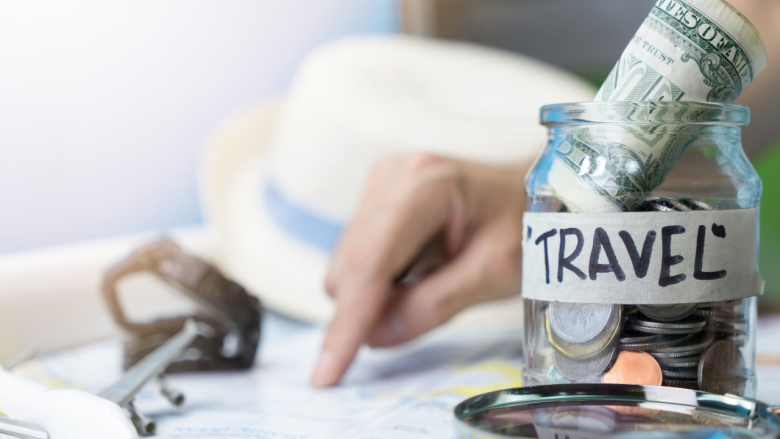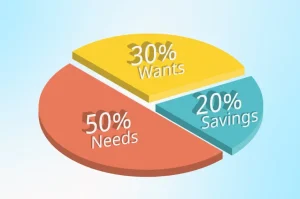Planning a vacation can be daunting, especially if you’re worried about the cost. Many people think a great trip comes with a hefty price tag, but that’s not true. You can enjoy a wonderful vacation without exceeding your budget if you plan ahead and act wisely. Understanding where your money goes and how to spend it wisely is crucial.
Creating a Reasonable Budget
The first step in creating a reasonable vacation budget is taking an honest look at your finances. Review your monthly income and expenses to determine how much you can reasonably spend on your trip without jeopardizing your basic needs or emergency fund. It’s better to spread your vacation spending over several months instead of putting everything on a credit card. First, calculate how much you can afford. Then, divide this amount into categories, such as transportation, accommodations, meals, activities, and other expenses.
Don’t forget to set aside 10% to 20% of your budget for unexpected expenses. Think about all the ways you’ll need to spend money on your vacation, from airport parking to souvenirs. Please ensure your budget is accurate, clearly identify each item, and monitor your actual travel expenses. Good preparation prevents surprises and helps you spend wisely during your trip.
Track Your Spending
Keeping track of your vacation spending is crucial for staying within your budget, but it’s easy to forget when you’re excited about planning a trip. Use a budgeting app, spreadsheet, or even just a notebook to keep track of all your travel expenses. Review your budget daily to see how much you have left and adjust your spending as needed. Should you find that you’re overspending in one area, please consider reducing expenses in other areas.
If you overspend on a fancy dinner, consider having breakfast in your hotel room or opting for a free activity the next day. Many travelers find it more economical to carry cash for things like meals and souvenirs, as you’re less likely to go over budget than with a credit card. Instead of making a list at home, take photos of your receipts and organize them by expense.
Off-Season Travel
Planning your vacation carefully can save you a lot on all your major expenses. Off-season travel generally means lower airfare, hotel, and activity costs. You’ll also encounter fewer people and generally enjoy better service. Research when your destination is busiest and, if possible, plan your trip during the shoulder or off-peak season. If you’re going to the beach, choose late spring or early fall instead of summer. Late winter or early spring is a wonderful time to visit European cities, as hotel prices drop significantly.
Remember that off-season doesn’t necessarily mean bad weather or fewer activities. Many places offer special events during less busy months, such as festivals, local events, or seasonal activities, that aren’t available during peak season. Be open to changing your vacation plans and use flight comparison websites with price calendars to find the cheapest flight dates.
Search for Deals and Offers
Knowing how to find deals can save you a significant amount on your vacation without sacrificing quality. Before planning your trip, subscribe to emails from airlines, hotel membership programs, and websites offering travel deals. Many offer special discounts to anyone who registers or becomes a member. Look for package deals that include both airfare and hotels. These deals are often more affordable than booking flights and hotels separately. Check vacation rental websites, where you can find entire apartments or houses for less than a hotel room, especially if you’re staying longer or traveling with a group.
Please keep in mind any discounts you might receive through your work, clubs, or credit cards. AAA members, military personnel, seniors, and students often get discounts on everything from car rentals to tours. If you’re traveling with family or friends, you might even qualify for group discounts. Contact your local tourism board and visitor center. They often offer coupons and information on free or low-cost activities.
Free Activities
Every place you visit offers free or inexpensive activities to make your vacation even more exciting. Consider the free walking tours offered in most major cities; they’re a wonderful way to learn more about local history and culture. Many museums offer free admission on certain days or reduced prices in the evenings. Public beaches, hiking trails, parks, and scenic vistas are free to explore and often showcase a place’s natural beauty.
Attending festivals, fairs, and cultural events in your area can provide authentic experiences without exceeding your budget. Take advantage of hotel amenities like pools, gyms, and free breakfasts to save on other costs. Many cities offer free concerts, art exhibits, and outdoor historical sites. Consider a picnic in a nearby park, take a hike, or watch the sunset from a public spot. These experiences often foster a more profound connection to the destination than costly tourist attractions, allowing you to create unforgettable memories without exceeding your budget.
Plan Your Budget Trip Now
Setting a vacation budget doesn’t mean you have to sacrifice fun or endure a miserable time. You can create wonderful travel memories without worrying about money by setting reasonable expectations, tracking your spending, planning your itinerary wisely, monitoring deals, and taking advantage of free events. The best trips are about the people you meet and the things you do, not the cost. Apply these tips to your next trip, and you’ll find that you can have a fantastic adventure on almost any budget. The key is to plan ahead and make smart decisions that align with your travel goals and budget.
FAQs
1. When should I start saving for my vacation?
Start saving at least six to twelve months before departure. This gives you time to save without worrying about money and allows you to take advantage of discounts when booking in advance.
2. Should you pay for your vacation with cash or a credit card?
Use both. Use a rewards credit card for major expenses like flights and hotels to earn points and protection. However, it’s best to use cash for everyday expenses to avoid overspending.
3. How can I save money on food during my vacation?
Choose accommodations with a kitchen, buy ingredients at local supermarkets, eat at places where the locals frequent, and combine restaurant meals with picnics and easy-to-prepare ingredients.
4. What’s the most common mistake people make when planning their vacation budget?
Daily expenses like meals, transportation, activities, and incidentals aren’t included in the total cost calculation.




